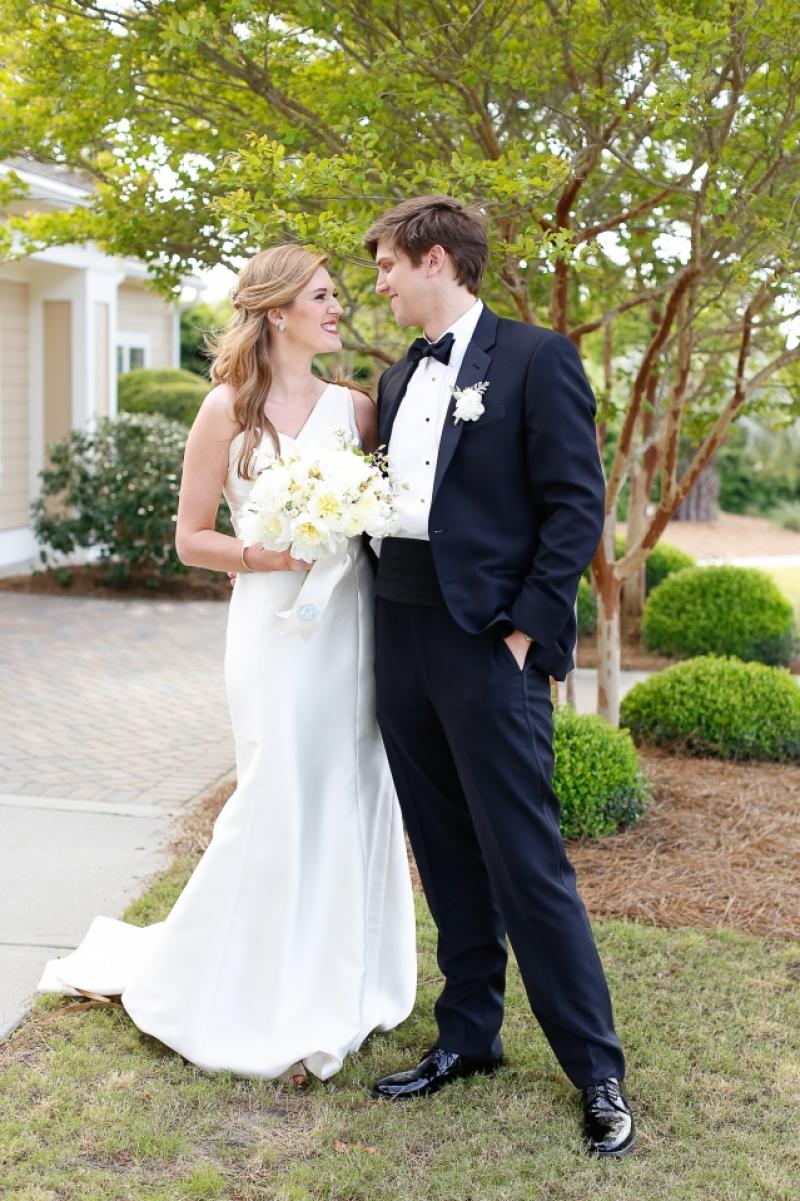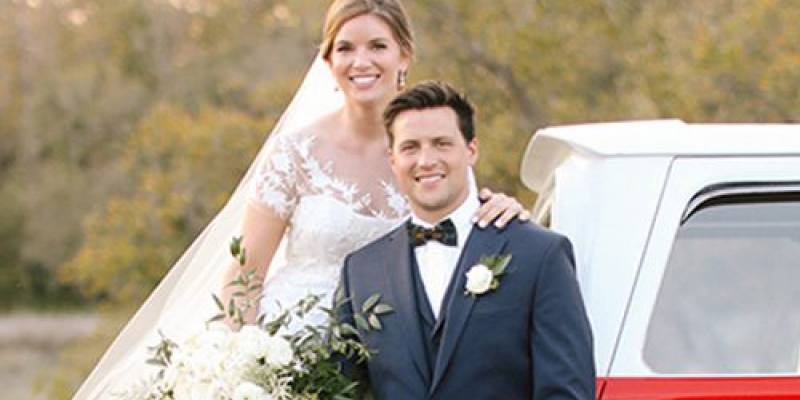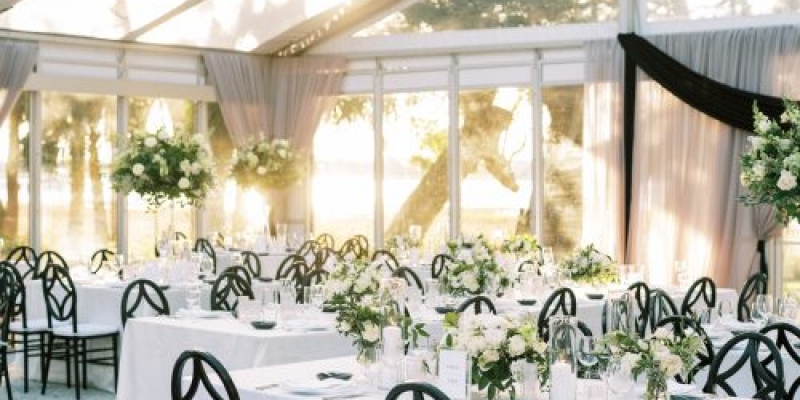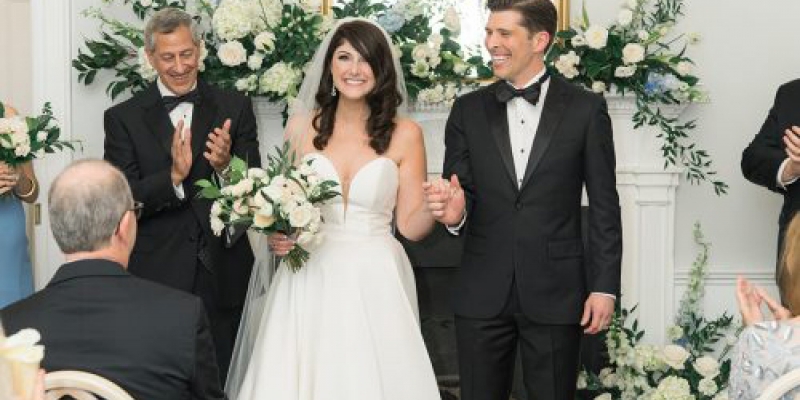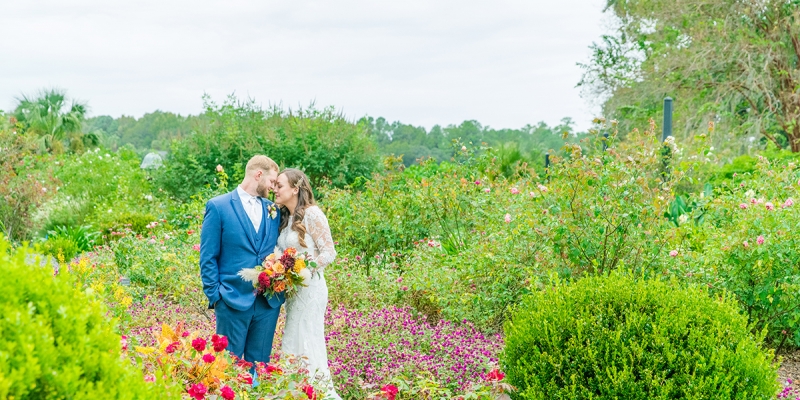Sometimes the not-so-best day can still hold the best moment of your life. So says Meredith Bynum of October 3, 2015, the day she exchanged vows with her now-husband, Zack. That weekend, an historic flood swept over the Lowcountry, causing Seabrook Island, where the couple was to host their wedding, to be under feet of water. Their reception location, the Seabrook Island Club, was closed as employees couldn’t reach the resort. Instead of scrapping their plans entirely, Zack (along with the wedding party and a handful of guests) waded through the flood to the beach-house rental where Meredith waited, and the couple traded vows inside on a sweeping staircase. “At first I felt robbed,” admits Meredith, “but it taught me that what truly matters is having each other.”
Still, she craved her long-planned dream day, so the gurus at Sweetgrass Social Event & Design orchestrated an April marriage blessing with the original bells and whistles they’d organized with the bride a year prior. “Their April date turned out to be gorgeous, and the couple couldn’t have been happier,” says Mallory Severs of Sweetgrass. While encores are not necessarily in every couple’s grasp, there is a lot to learn from the Bynum’s experience and the Sweetgrass team’s maneuvering through the sticky situation. “There can be a lot of panic around Lowcountry weather,” says Mallory, “but there are ways to prepare.” Read on for tips from Meredith and Zack’s planner, Jacqueline Volz of Sweetgrass Social.
Charleston Weddings: What are tricky times of year weather-wise in Charleston?
Sweetgrass Social: Spring can bring a lot of rain, and fall has the risk of hurricanes. With big storms, though, you usually have a few days to begin making a shift in venue and date. The prior notice also allows you to set a time to make a final call on your plan, be that plan B (which we consider from day one of working with a client), a cancellation, or a rebooking.
CW: Do you recommend wedding insurance?
SS: Absolutely! Wedding insurance can save you so much money in the event of a natural disaster. You are typically putting down a lot of money in deposits, which wedding insurance secures. Get a policy at the beginning of the planning process—it can cover as little or as much as you would like for it to and typically costs between $350 to $650. We recommend
Wedding Protector Plan or
WedSafe.
CW: What contingencies do vendors have?
SS: Most vendors have an “Act of God” policy in their contract stating that if a natural disaster happens, they will make all efforts to reschedule.
CW: A do-over is not practical for everyone. What should a couple consider before planning one?
SS: Consider the time of year (make sure people have enough time between the original and new dates to save money); the location (it may be more convenient to choose another city); and your vendors (how many would be able to move your contract to the new date).
CW: How does a do-over work logistically?
SS: For the Bynums, we came up with three dates that worked for them then reached out to the vendors for their availability. Luckily, we only needed to find two new vendors—all others graciously moved the contract to a new date with no additional deposits or change in cost.
CW: Etiquette-wise, how can you ask guests to return, especially if it’s a destination wedding?
SS: In this situation, the parents of the bride wrote each guest a letter letting them know how much they appreciated them traveling to celebrate their daughter’s marriage. They explained that, with the unfortunate weather, they were rescheduling the full celebration to a new date; however, they wrote, they completely understood if those invited were unable to attend the April ceremony.
